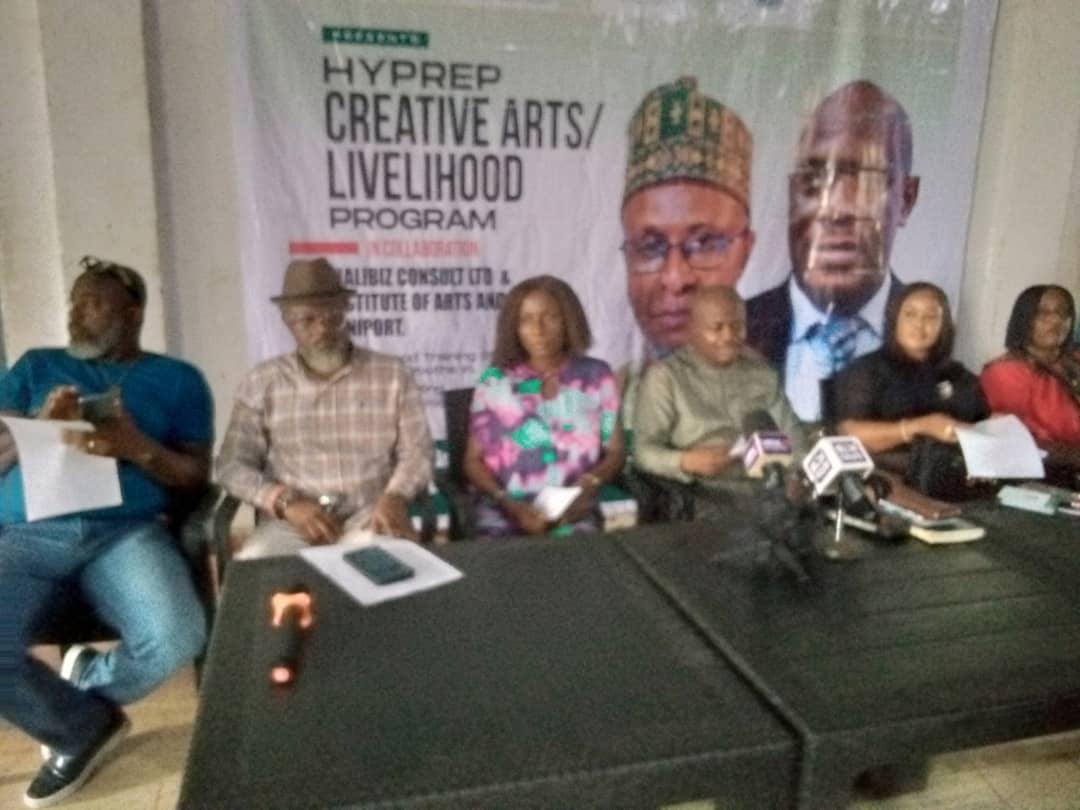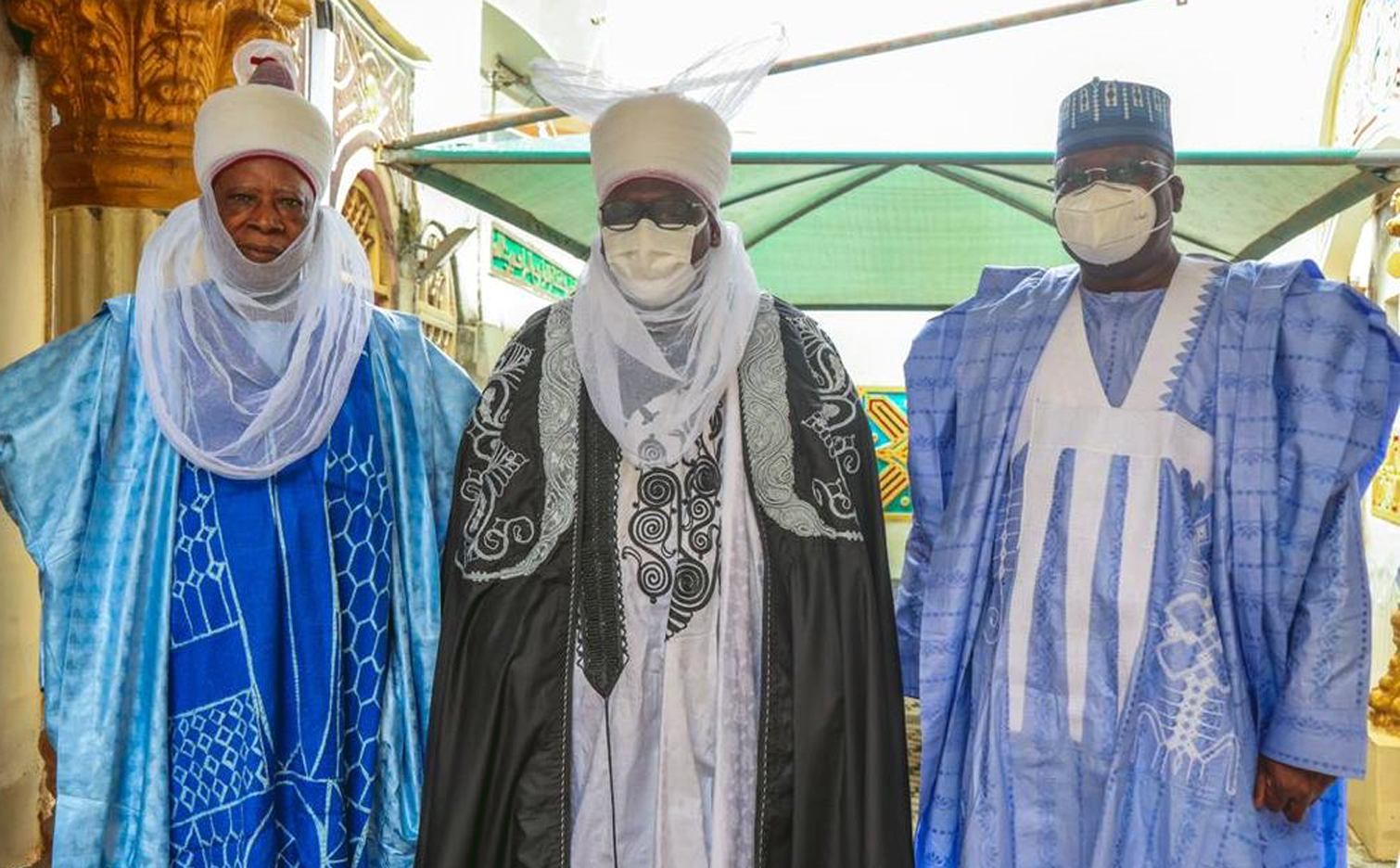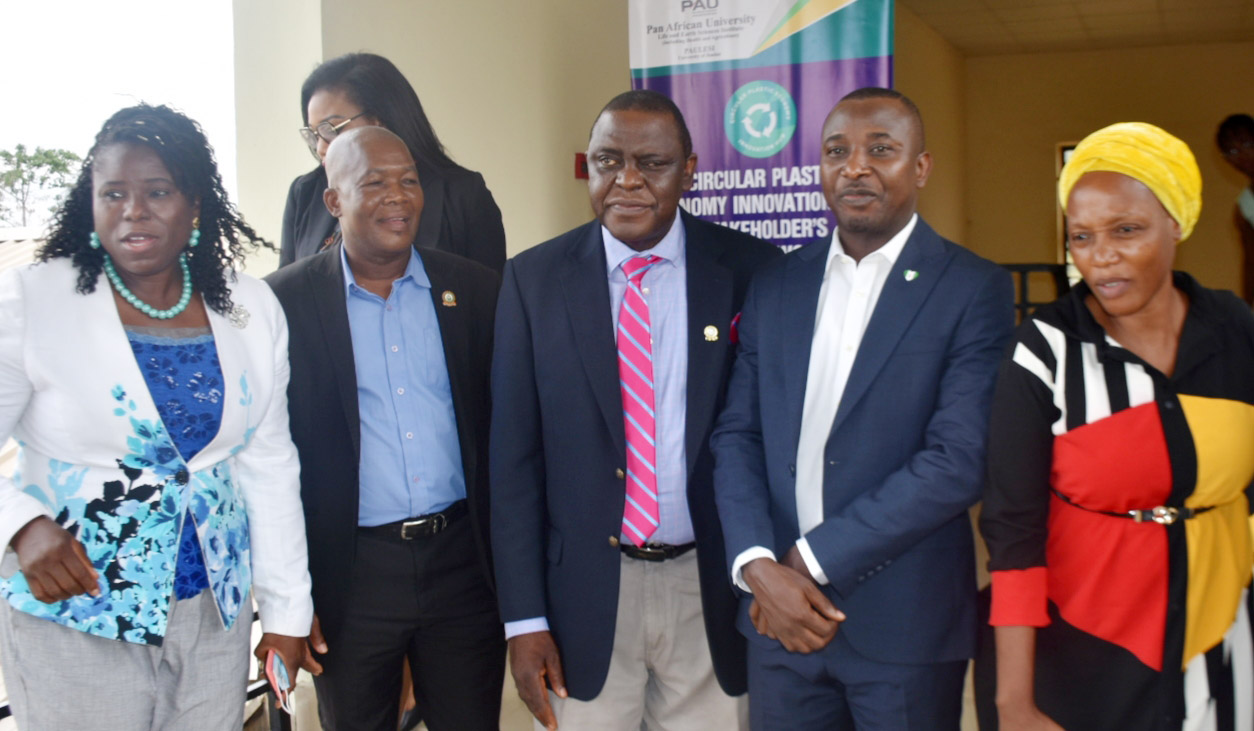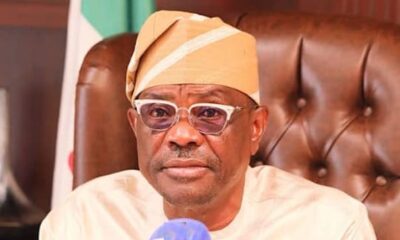Nation
‘Without Alternative Energy, Petrol Price’ll Rise on Subsidy Removal’
The Department of Petroleum Resources (DPR) has warned that the pump price of petrol in the country may rise up to as much as N1,000 per litre when petrol subsidy regime comes to an end without an alternative energy source.
The DPR stated this just as some oil and gas experts have advocated for a measure from the government that will ensure that Nigeria gets commensurate value from its abundant oil and gas resources like its fellow oil producing nations.
The Director of DPR, Mr. Sarki Auwalu, said this while responding to questions and comments generated by a paper he delivered in Lagos, recently, at the Second Quarter, 2021 Business Dinner of Petroleum Club, Lagos.
The topic of the paper was, “A Discussion on the Future of the Nigerian Petroleum Industry.”
The questions and comments came from a former Group Managing Director of the Nigerian National Petroleum Corporation (NNPC), Mr. Funsho Kupolokun; political economist and Founder of Centre for Values in Leadership, Prof. Pat Utomi; Production Geologist at Shell Nigeria, Mr. Adedoyin Orekoya; and Chairman of AA Holdings, Mr. Austin Avuru; amongst others.
Responding to the subsidy concerns and the disparity in the petrol consumption figures given by NNPC and the DPR, as raised by Orekoya, Auwalu, acknowledged that Nigeria was spending so much on petrol subsidy.
He said eliminating it would require making alternative fuel available to Nigerians and that failure to do that will plunge Nigerians into paying higher petrol prices when subsidy is removed.
He stated that Nigerians may be paying as high as N1, 000 to buy one litre of petrol in the country when subsidy on petrol is removed and when the alternative energy or autogas gas policy becomes fully operational.
He, however, said the alternative fuel regime comes with initial cost as it will lead to spending $400 to convert one vehicle from running on petrol or diesel to running on either Liquefied Natural Gas (LNG) or Compressed Natural Gas (CNG).
Auwalu maintained that converting eight million public vehicles currently present in Nigeria to gas-powered will cumulatively cost $3.2billion to achieve.
He said, “So, to eliminate subsidy, they don’t call it subsidy anymore now, it’s under-recovery of purchase. So, to eliminate under-recovery, what you need is alternative fuel. Without alternative, you will subject people to higher prices and that is why we go for price freedom.
“As at today, there are 22 million cars in Nigeria. Eight million are for public use. Imagine if you want to convert every car into gas, the average cost of conversion is $400. Converting eight million cars requires $3.2billion. To do that, there are a lot of environmental investors which can invest and recover from the sale of gas and we are encouraging that.
“Once that is achieved, you will see that PMS can be sold at N1,000. After all, the average distance covered by one gallon equivalent when you compare it with LNG or CNG with respect to energy for mobility, is 2.7 against one; one for PMS, 2.7 for LNG or CNG.
”So, with that advantage, you will see that it creates opportunity for this industry again. The issue of subsidy, volume will all vanish and that is what we are working towards.”
He, however, warned that the rise in Nigeria’s local refining capacity as seen in the coming on stream of a number of refineries in the country without a corresponding increase in the country’s oil production volume may threaten the country’s membership of the Organisation of Petroleum Exporting Countries (OPEC).
The director lamented that out of Nigeria’s over 7,100 reservoirs and its mature basins, the country was recovering just as low as about 1,000, a situation he said, needed the collaboration of all industry players to find a solution to before Nigeria gets evicted from OPEC due to low contribution.
“How do we now get the national production capacity so that we export more, we consume more? Today, we have huge additional capacity in domestic refining. If we don’t increase the production, we have to get out of OPEC, because you can’t be a net consumer to stay in exporting countries.
“So, the challenge is for all of us. As the refining capacity is increasing, we have to now get production capacity to increase so that we remain the net exporter. We believe this will guarantee and fortify the future,” he said.
Responding to Kupolokun’s question on the need to address the low contribution of the oil and gas sector to the country’s Gross Domestic Product (GDP), which is less than 10 per cent, Auwalu attributed the abysmal contribution to lack of deep investment into the value chain of the sector as well as the export mentality of the players.
According to him, only few players, mostly indigenous companies, have the mentality of ensuring that more output, especially with respect to gas, was given to the domestic market to power the country’s economic growth.
He said there was need to focus on domestic market in order to grow the sector’s contribution to GDP.
He explained what the department and the Federal Government were doing to address the two-pronged challenge of energy transition and the transition from the international oil companies (IOCs) operating in Nigeria, who are divesting out of the country, leaving the indigenous oil companies to take over from them.
Auwalu said the department had foreseen such situation and had planned ahead by setting up the Oil and Gas Excellence Centre to equip local companies to be able to fill the gap created by such transition.
“Now, we are saddled with two transitions: energy transition and transition from IOCs to NOCs. Why did we establish Nigerian Oil and Gas Excellence Centre? It’s because of this. We’ve seen this coming; we thought it twice before now.
“It is our duty to make those companies functional, and to do that, we need to establish a centre of excellence that will help in the migration from IOCs,” he explained.
Also reacting to the need for scenario planning and the possibility of galvanising the private and public sector to work together to increase the value of oil and gas to the economy, as proposed by Utomi, the DPR henchman noted that the agency had transformed from mere regulator to business enabler and opportunity provider and was working to maximise the value of the sector to the economy.
Auwalu maintained that as a business enabler, DPR was after creating an enabling environment for operators to work, produce, make returns on their investments and pay taxes and royalties to the government as while providing employment to Nigerians.
Nation
HYPREP Inducts 100 Ogoni Youths For Creative Arts Training

The Hydrocarbon Pollution Remediation Project(HYPREP) has inducted and given orientation to 100 Ogoni youths for training on Creative Arts. The beneficiaries were drawn from Khana, Gokana, Tai and Eleme Local Government Areas of Rivers State.
The induction and orientation ceremony, which took place at the CRAB of the Department of Theatre Arts of the University of Port Harcourt on Wednesday, was a prelude to the training proper, billed to commence next Tuesday.
As usual, HYPREP issued undertaking forms to the trainees, for them to complete and submit as a guarantee that they would subject themselves to the requirements of the programme as well as be of good behaviour throughout the four-month duration of the training.
HYPREP also announced that it would pay N150,000 to each of the beneficiaries monthly, as transport and feeding allowance, stressing, however, that only those who fully participate in the training would be entitled for the allowance.
Speaking at the event, the Project Coordinator of HYPREP, Prof Nenibarini Zabbey, welcomed the trainees to the programme, saying, HYPREP’s projects are evolving and that one thing that is happening today is that the Project has gotten leadership right, by making promises and keeping those promises.
According to him, the Project had equally promised to move away from rudimentary skills acquisition to high impacts acquisition levels, which it has kept today by sponsoring the training on Creative Arts.
He noted that in planning its livelihood programmes for Ogoni youths, HYPREP has taken time out to look for skills that would add value to the lives of the beneficiaries.
Zabbey, who was represented at the event by the Director of Technical Services, Prof Damian-Paul Aguiyi said by packaging the Creative Arts training, it was expected that the Ogoni people would have their own version of Nollywood known as Ogoniwood just as Nigerians are familiar with Hollywood, Bollywood, Kannywood and Nollywood.
To achieve this goal, the Project Coordinator explained that it was the reason for choosing a reputable establishment like Halibiz Consult Limited, to partner with the Department of Theatre Arts of the University of Port Harcourt, which he described as one of the most prestigious in the Niger Delta, for the training of the beneficiaries.
He also indicated that in doing this, HYPREP was desirous of going for talents that would help the Ogoni people grow in the film industry, and urged the beneficiaries to take the training seriously.
Zabbey equally enjoined the trainees to put in their best so that in the next three to five years, they would carve a niche for themselves and become forces to reckon with in the film industry.
On her part, HYPREP’s Head of Sustainable Livelihood, Mrs Josephine Nzidee said HYPREP does what it says it will, stressing that the process of training Ogoni youths on specialised skills started three years ago.
According to her, the selection process for the training was rigorous and transparent, and was carried out by renowned actors actresses.
She disclosed that the training consists of three major aspects, which include acting, script writing and make-up, while Nollywood actors like Charles Nnoje, Ngezu J. Ngezu and award-winning make-up artist, Jude Odo would be on hand to drill and groom the beneficiaries.
Mrs Nzidee noted that the programme is a specialised training that does not have anything like starter packs but that it is purely a professional certification programme that would launch the beneficiaries into the Nollywood industry in Nigeria.
According to her, the Creative Arts training is one of the four specialised trainings organised by HYPREP to ensure that the Ogoni people are well positioned in vital industries like Aviation, Maritime, Creative Arts and Mechatronics.
She said the last of such trainings on Mechatronics would take place in the coming months, and urged the beneficiaries to take the training seriously so as to put the Ogoni people on the Nollywood map.
She further indicated that while Charles Nnoje and Ngezu J. Ngezu would take the beneficiaries on the practical aspects, Jude Odo would take them on the make-up aspects.
Also speaking, the External Relations Manager of Halibiz Consult Limited, Alabo Experience Douglas said his company gives much premium to standard and quality, and assured that the firm would give the trainees value for the money spent on the programme.
While charging the beneficiaries to be dedicated and punctual, he stressed the need for them to approach the programme with the mindset of being empty so that at the end of the day, they would benefit maximally.
On his part, the Head of the Theatre Arts Department of the University of Port Harcourt, Dr Ovunda Ihunwo said the CRAB is an acronym for Creative Review of Arts and Books, stressing that it was named by renowned playwright, Prof Ola Rotimi.
According to him, the CRAB had nurtured, groomed and produced Nollywood actors and actresses like Bobmanuel Udokwu, Ejike Asiegbu,Francis Duru, Hilda Dokubo, Monalisa Chinda, Julius Agwu, and a host of others, assuring the beneficiaries that they were on fertile environment to hone their talents.
He noted that symbolically, the crab is a nutritious seafood common in the Niger Delta, and reiterated the need for the beneficiaries to come empty for the training, as it were.
Ihunwo disclosed that the theory classes of the programme would run for three weeks while the fourth week would be for the master classes, and urged the trainees to avail themselves of the opportunity to make a difference by telling the Ogoni story, which he described as inexhaustible by themselves, in order to put Ogoni on the map.
Nation
Nasarawa Varsity Student Commits Suicide

A 23-year-old student of Nasarawa State University identified as Jatau Rilokwah, has been reportedly found dead in the university’s senior staff quarters.
A counter-insurgency expert, focused on the Lake Chad region, Zagazola Makama, disclosed this on his X handle on Tuesday.
According to him, the discovery was made on April 27, 2025, by a security officer at the university, Emmanuel Gyawo.
He stated that Gwayo was directed by Prof. Shedrack Jatau to check on his son upon arriving at the residence, and he found Rilokwah hanging from the ceiling.
“Professor Jatau, who was reportedly out of the State at the time, was informed of the incident. A team of police detectives, led by the Divisional Crime Officer of Angwan Lambu, was dispatched to the scene.
“The body showed no signs of violence, and no suicide note was found. Rilokwah was rushed to the Federal Medical Centre in Keffi, where he was confirmed dead by a medical doctor,” he further stated.
He added that the student’s corpse had been deposited in the hospital morgue.
He also quoted police sources as saying that investigations were ongoing to determine the circumstances surrounding the incident.
Nation
Ogun, Nike Art Gallery Set To Transform Olumo Rock

The Ogun State Government has partnered with Nike Art Gallery to establish a new exhibition space at the Olumo Rock Tourist Centre in Abeokuta, a move Governor Dapo Abiodun says is aimed at boosting annual tourist visits from 20,000 to over 100,000.
Abiodun disclosed the plan on Wednesday while receiving the founder of the Nike Art Gallery, Chief (Mrs) Nike Davies-Okundaye, at his office in Oke-Mosan, Abeokuta.
“I went to Olumo Rock about a month ago and I decided that we needed to do something about restoring Olumo Rock to its old glory. From statistics, Olumo Rock hosts about 20,000 people a year in its current state, and I felt that we could increase that to at least ten times,” the governor said.
As part of the plan, an events hall within the tourist centre will be repurposed as a permanent gallery operated by Nike Art Gallery.
“I told them to shut it down. Practically, we want to bring it down and turn it into a gallery for you to use as an exhibition gallery,” he told Davies-Okundaye.
He added that the gallery will be ready before the National Sports Festival in May, when the State will host about 15,000 visitors.
“I want them to be able to see our tourist sites,” he said, listing attractions such as the Olusegun Obasanjo Presidential Library, the Ransome-Kuti family home, and the Adire market among key heritage spots to be showcased.
Highlighting Ogun’s improved infrastructure, the governor said, “Now that we’ve succeeded in having the intra and inter-state roads in place, you can come to Ogun State by rail; you can come by air. We’ve constructed one of the best airports in Nigeria, and very soon, you will be able to come by sea.”
Davies-Okundaye, in her remarks, praised the state’s efforts to promote tourism and pledged to use the new gallery to attract global attention.
“This gallery will bring many Heads of State. The one I opened in Abuja already has more than 10 Heads of State, including those from South Korea and the Czech Republic. The same will happen here,” she said.
She also applauded the Governor for his commitment to the Adire fabric industry.
“Adire is all over Nigeria, but Ogun has been promoting Adire for over 50 years. Today, the only cloth we can call our own is called Adire. This is what we can sell to the Europeans,” she said.
Abiodun reaffirmed his administration’s backing of the Adire industry, citing policies such as the Adire Ogun Digital Marketplace, compulsory wearing of Adire in the state, and provision of solar-powered production equipment to support artisans.
He also revealed plans to open a creative arts and entertainment village in partnership with Bolanle Austen-Peters, expected to be completed within two months.
-
Business5 days ago
NEPC Distributes 4,633 Hybrid Seedlings Across Nigeria
-
News5 days ago
Tinubu Vows To Prioritise Workers’ Welfare
-
Politics5 days ago
Election Rigging: Nigerians React As Appeal Court Upholds Prof Ogban’s Conviction
-

 News4 days ago
News4 days ago2025 UTME: JAMB Disowns Site Requesting Payment From Candidates
-
Niger Delta5 days ago
Oborevwori, Others’ Defection Creates Political Tsunami – Tinubu …As Gov Tags It ‘Movement’
-

 Nation5 days ago
Nation5 days agoWike Fires Back At Atiku, Dele Momodu Over Zoning Comment
-
Business5 days ago
Improved Income Drives NGX Group To Profitability
-
News5 days ago
Rivers Gears Up For First Round Of Polio Immunization Campaign

